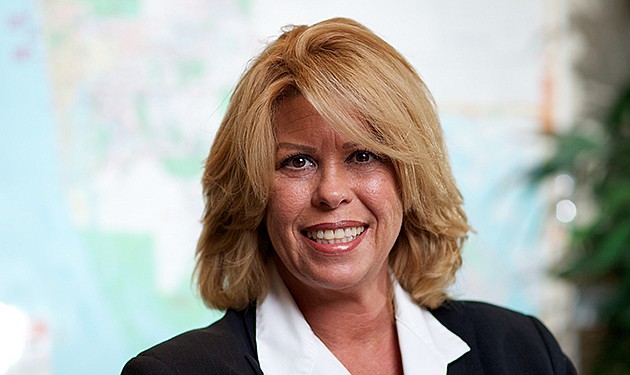- November 27, 2024
-
-
Loading

Loading

The first speaker at a recent packed real estate conference in Fort Myers wasn't a builder, developer or financier.
It was Ron Toll, the provost of Florida Gulf Coast University in Fort Myers, who reminded his audience that the university was one of the few bright spots during the real estate crash.
Fact is, the university sustained many construction-related firms through the dark days of the recession when virtually no private-sector building was going on. When the university saw its first class in 1997, it had three buildings. Now, there are 90 major buildings on the campus accommodating 14,100 students near Interstate 75 and Alico Road.
It's a good thing that the economy is recovering because the university's building boom is over for now, the victim of state cutbacks. “There is no more money to build at the same clip as before,” Toll told a gathering of the Real Estate Investment Society recently.
But the diminishing state spending is now being offset by the resurgence in private commercial construction. New hotels, shops, restaurants and offices are appearing on prominent corners throughout Lee and Collier counties.
Underpinning this resurgence is the recovery in residential real estate as homebuilders ramp up. For example, in 2009, there was a 14-month supply of housing in Lee County. Today, that supply has dwindled to about four to six months based on the current pace of sales, according to Paige Rausch, commercial adviser with Boback Commercial Group in Fort Myers.
Builders have taken notice. Through the second quarter of this year, 1,442 new single-family homes have been added to Lee's tax rolls, 46% more than all of 2012, Rausch says, citing data from the Lee County Property Appraiser.
Through August, Lee County has permitted 614 single-family homes, 10% more than all of last year. “We don't have inventory,” Rausch says. “You're going to start to see the prices come up.”
As the residential market improves, commercial investors are seeing new opportunities. Stephen Hagenbuckle, managing principal of TerraCap Management, says his real estate investment firm has raised nearly $100 million in a fund to acquire commercial properties in areas from Tampa to Naples.
TerraCap acquired commercial properties in recent years because Hagenbuckle says they were undervalued. “The pendulum had swayed way too far in this market,” he says. “We have properties where we're raising rental rates.”
The financing of commercial acquisition and development is becoming more available, says Paul Stasaitis, senior managing director with Holliday Fenoglio Fowler in Miami. The firm connects institutional investors and real estate entrepreneurs who need financing.
“There's a home for just about everything right now,” says Stasaitis.
Lenders range from insurance companies to commercial banks, debt funds and the commercial mortgage-backed securities market. Stasaitis says banks are now the most active providers of construction financing, with apartments the most desirable asset.
No sector is taboo. “There have been several condo-construction loans done in 2013,” Stasaitis says.
Commercial mortgage-backed securities are attractive to investors again as memories of the real estate crash recede. “There's probably upwards of 30 CMBS aggregators in the marketplace,” Stasaitis says.
Stasaitis says funds that provide debt are providing money for speculative projects in the right locations. “We just see more and more capital coming into the market,” he says.
Despite the increase in available capital, Stasaitis says investors are being selective. They're picking developers with experience and a track record of success. “You have to know everything that's going on,” he says.